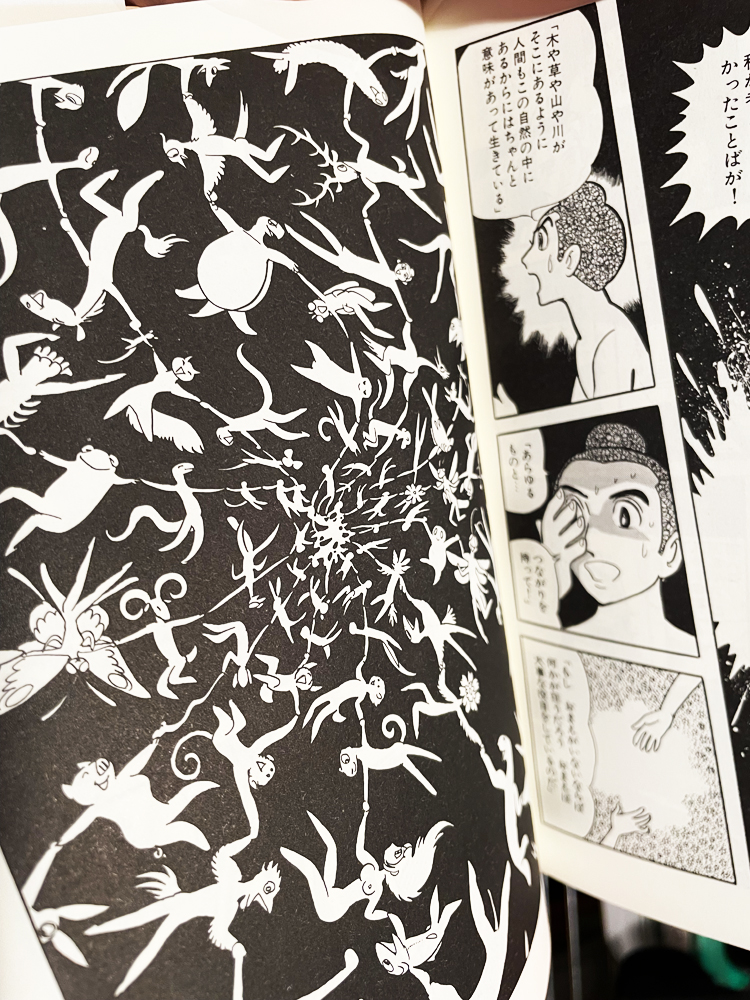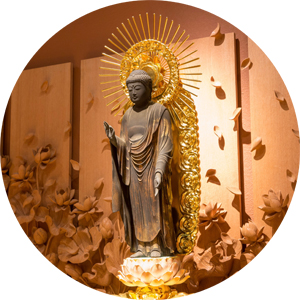Ⅰ02.Thanks to all living beings for my life here and now.
For one person to be born into this world, two people are necessary. It might be better to say one man and one woman. Every person has two birth parents, who are an indispensable connection for being born into this world.
For every one of us, there are always two parents and four grandparents. And also, if I consider that my four grandparents also had parents, that means I have eight great-grandparents.
Regarding four grandparents, you may have lived together, had the opportunity to meet them several times a year, have photographs of them, have heard about what they were like, or at least know their names.
However, when it comes to eight great-grandparents, the image becomes quite vague.
Of course, those eight great-grandparents also have fathers and mothers. It takes 16 people to have 8 great-grandparents. These people are called great-great-grandparents.
In order to have 16 great-great-grandparents, there must be 32 people before them. When it comes to a fifth generation, it might be better to say “ancestors.”
Going back this far, unless the person was a legendary figure, there would be no records of them. What their names were, what they looked like, and what kind of lives they led are not usually communicated.
“Thank you” in English is “arigatou” in Japanese. Its Japanese origin means “something rare and precious.” I am, you are, and everyone is one irreplaceable life born into the eternal linkage of life.
If even one person in that chain hadn’t existed, we might not have been born. Every encounter is a condition that allows us to be alive now.
The fact that we are alive is not something we should take for granted. We should be grateful. It is rare and precious that we even exist.
The chain doesn’t stop at 32 ancestors, so there are 64 people before them. Before them there are 128 ancestors, before them there are 256, and before them there are 512 ancestors. If we go back further, the number of ancestors doubles more and more. It goes on and on and on, increasing forever.
If even one of my ancestors had not existed, I would not have been born. The me here and now is just one life born into the connection of eternal life.
Each and everyone of us is living now, which is the result of the interconnectedness of eternal life. If we trace back each and every life, we will find that we are all connected somewhere.
For Japanese people, the “you” in “thank you” does not necessarily refer to a specific individual. It seems that Japanese people have the sense of understanding that the “you” in “thank you” represents all life.
I am grateful that I was miraculously born into this world of linkage and that I am alive now. Every person is a very rare and precious being. Each of us is irreplaceable.
In Japanese, there is a word, “okagesama” that can be used to express gratitude to others.
The origin of this phrase is that “there are various forces at work that are invisible like shadows.” When we say “okagesama” we are expressing gratitude to all of the various forces. We exist now because of the indirect action of those invisible forces.
A feature of Japanese usage is that the subject and object are often omitted. In English, we say “I LOVE YOU,” which clearly indicates who the expression is directed to. But in Japanese, it’s just one word: “aishiteru.” The Japanese word “okagesama” also has a similar nuance.
It’s not just that Japanese say “okagesama” because someone has done something for us. We use the word “okagesama” to show our respect to all existent beings. It shows an unconditional gratitude for the linkage of eternal life.
The eternal linkage of life might be rephrased as the source of all life in nature. We get our daily energy from eating a variety of foods. These foods all come from the same source of life.
Not only meat and fish, but rice, wheat, and vegetables are life too. Japanese people have traditionally perceived that all things are individual living beings that come from the same source.
Before eating, Japanese people put their hands together and say “Itadakimasu”. The origin of this phrase means “my life is sustained by receiving the life of other living things.”
Japanese people say “mottainai” when they leave food or waste ingredients. This is a precept to ourself, that we must not waste precious life. It also expresses an attitude of humility and gratitude towards all living things.

『Buddha』by Osamu Tezuka vol.4 P359
All lives are connected, and each and every one of us is irreplaceable and indispensable.
I believe that the ancestors of the Japanese people naturally felt and cherished this.
This is also what Buddhism is trying to tell us.
We tend to forget this, but I think it is a very important thing that we should never forget.
Ⅰ_Japanese Spirituality
02. Thanks to all living beings for my life here and now.
03. Becoming One with the Buddha
04. Light from the other shore
Ⅱ_The teachings of Buddha and Mahayana thought
01. HANAMATSURI -The Beginnings of Buddhism-
02. Anyone can become a Buddha, it depends on you.
Ⅲ_Prince Shotoku’s Buddhist Dharma
01. Buddha in Japan
02. Ideal of sincerity, courtesy, and harmony
03. What’s false? What’s truth?
Ⅳ_The true state of mind conveyed by Shinran
01. The Three Treasures of Buddhism
02. SHIN is PRASADA
03. Neither a monk nor an layperson
Ⅴ_Listen to namamdhabud


